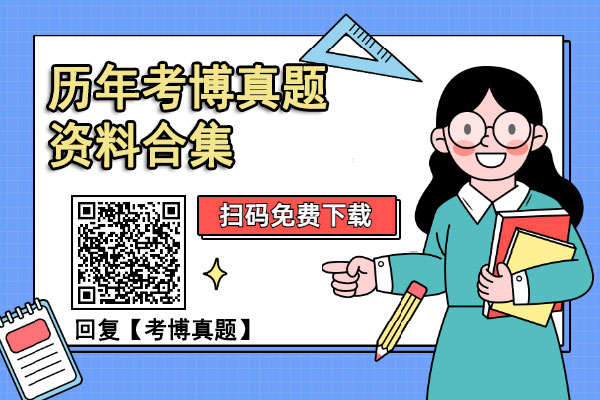Passage 3
A report published recently brings bad news about air pollution. It suggests that it could be as damaging to our health as exposure to the radiation from the 1986 Ukraine nuclear power disaster. The report was published by the UK Royal Commission on Environmental Pollution. But what can city people do to reduce exposure to air pollution? Quite a lot, it turns out.
Avoid walking in busy streets. Choose side streets and parks instead. Pollution levels can fall a considerable amount just by moving a few meters away from the main pollution source----exhaust fumes. Also don’t walk behind smokers. Walk on the windward side of the street where exposure to pollutants can be 50 percent less than on the downwind side.
Sitting on the driver’s side of a bus can increase your exposure by 10 percent, compared with sitting on the side nearest the pavement. Sitting upstairs on a double-decker can reduce exposure. It is difficult to say whether traveling on an underground train is better or worse than taking the bus. Air pollution on underground trains tends to be less toxic that that at street level, because underground pollution is mostly made up of tiny iron particles thrown up by wheels hitting the rails. But diesel and petrol fumes have a mixture of pollutants.
When you are crossing a road, stand well back from the curb while you wait for the light to change. Every meter really does count when you are close to traffic. As the traffic begins to move, fumes can be reduced in just a few seconds. So holding your breath for just a moment can make a difference, even though it might sound silly.
There are large sudden pollution increases during rush hours. Pollution levels fall during nighttime. The time of year also makes a big difference. Pollution levels tend to be at their lowest during spring and autumn when winds are freshest. Extreme cold or hot weather has a trapping effect and tends to cause a build-up of pollutants.
46. What is the passage mainly about?
A. How to fight air pollution in big cities.
B. How to avoid air pollution in big cities
C. How to breathe fresh air in big cities
D. How serious air pollution is in big cities
47. According to the report, air pollution in big cities _____________.l
A. can be more serious than Chernobyl nuclear disaster
B. cannot be compared with the disaster Chernobyl
C. can release as damaging radiation as the Chernobyl disaster
D. can be more serious than we used to think.
48. When you walk in a busy street, you should walk on the side ________.
A. where the wind is coming
B. where the wind is going
C. where the wind is weaker
D. where the wind is stronger
49. If you take a bus in a big city in china, you should sit _________.
A. on the left side in the bus
B. on the right side on the bus
C. in the middle of the bus
D. at the back of the bus
50. It is implied in the passage that __________.
A. people should not take street level transportation
B. tiny iron particles will not cause health problems
C. air pollution on an underground train is less poisonous
D. traveling on an underground train is better than taking the bus
Passage 4
The terrorist attacks in London Thursday served as a stunning reminder that today’s world, you never know that you might see when you pick up newspaper or turn on the TV. Disturbing images of terror can trigger an instinctive response no matter how close or far away from home the event happened.
Throughout history, every military conflict has involved psychological warfare in one way or another as the enemy sought to break the morale of their opponent. But thanks to advances in technology, the popularity of the Internet, and proliferation news coverage, the rules of engagement in this type of mental battle have changed.
Whether it’s a massive attack or a single horrific act, the effects of psychological warfare aren’t limited to the physical damage inflicted. Instead, the goal of these attacks is to instill a sense of fear that is much greater than the actual threat itself.
Therefore, the impact of psychological terror depends largely on how the acts are publicized the interpreted. But that also means there are ways to defend yourself and your loved ones by putting these fears into perspective and protecting your children from horrific images.
What Is Psychological Terror? “The use of terrorism as a tactic is based upon inducing a climate of fear that disproportionate with the actual threat,” says Middle Eastern historian Richard Bulliet of Columbia University. “Every time you have an act of violence, publicizing that violence becomes an important part of the act itself.”
“There are various ways to have your impact. You can have your impact by the magnitude of what you do, by the symbolic character of target, or the horrific quality of what you do to a single person,” Bulliet tells WebMD. “The point is that it isn’t what you do, but it’s how it’s covered that determines the effect.” For example, bulliet says the Iranian hostage crisis, which began in 1979 and lasted for 444 days, was actually one of the most harmless things that happened in the Middle East in the last 25 years. All of the U.S. hostages were eventually released unharmed, but the event remains a psychological scar for many Americans who watched helplessly as each evening’s newscast counted the days the hostages were being held captive.
Bulliet says terrorists frequently exploit images of a group of masked individuals exerting total power over their captives to send the message that the act is a collective demonstration of the group’s power rather than an individual criminal act. “You don’t have the notion that a certain person has taken a hostage. It’s an image of group power, and the force becomes generalized rather than personalized,” say Bulliet. “The randomness and the ubiquity(无处不在)of the threat give the impression of vastly greater capacities.”
Psychiatrist Ansar Haroun, who served in the U.S. army Reserves in the first gulf War and more recently in Afghanistan, says that terrorist groups often resort to psychological warfare because it’s the only tactic they have available to them. “They don’t have M-16s, and we have M-16s. They don’t have the mighty military power that we have, and they only have access to things like kidnapping,” says Haroun, who is also a clinical professor of psychiatry at the University of California, San Diego.
“In psychological warfare, even one beheading(斩首)can have the psychological impact that might be associated with killing 1,000 of the enemy,” Haround tells webMD. “You haven’t really harmed the enemy very much by killing one person on the other side. But in terms of inspiring fear, anxiety, terror, and making us all feel bad, you’ve achieved a lot of demoralization.”
51. What has changed the rules of psychological warfare?
A. Terrorist attacks.
B. The increase of military conflicts.
C. Advances in nuclear weapons.
D. Prosperity of the media.
52. The goal of psychological warfare is to __________.
A. change the ideology of the opponent
B. win a battle without military attacks
C. generate a greater sense of fear
D. bring about more physical damage
53. According to Richard Bulliet, publicizing a act of violence becomes an important part of terrorism itself because ____________.
A. psychological terrorism is a tactic
B. terrorism depends on a climate of fear rather than on the actual threat
C. the use of terrorism is to inspire fear that is more destructive than the actual threat
D. publicizing the violence can make more people know the actual threat
54. The Iranian hostage crisis shows that ___________.
A. means determines effects
B. hostage crises are prevalent
C. psychological terrors remain harmless
D. the American media is effective
55. In this passage the author __________.
A. emphasizes the great impact of psychological warfare
B. criticizes the violence of terrorism
C. calls for an end to psychological warfare
D. opposes the hostage crisis
Section B (10 points, 2 points each)
Directions: In this section, there is a passage with five questions. After have read the passage, answer each question in English with no more than 15 words. Write down your answer on the Answer Sheet.
At the beginning of a country’s rise out of backwardness and poverty, more wealth does make a difference. However, citing surveys from china and south Korea, the economist Richard Easterlin points out: “In these countries, per capita income has doubled in 20 years but overall happiness does not seem to have followed the same path.” Economists are surprised, because GNP(国民生产总值)has long been thought the best indicator of human welfare. More GNP generally means more money for most people, and more money improves the quality of life, and that means happiness.
But, perhaps, the survey suggests that more money can make you happy only if those around you do not share in your good fortune. General prosperity may fail to enhance individual contentment. Perhaps it is a matter of being aware of your advantage, not that you need to get the highest salaries or be the object of envy. Maybe, individual goals vary too much to be generalized. Maybe one has nothing at all to do with the other. Freud was well aware that economic success did not make people happy. Most psychoanalysts and therapists today would agree. He thought only the realization of a deep childhood desire could provide such satisfaction.
Another problem is that people are poor reporters of their own states of mind. They will usually tell you what they themselves want to believe. To know if someone is really happy or not, you have to catch him or her in the act of happiness. Being happy or acting happy are more reliable indicators than thinking too much about it.
Professional therapists also know that what makes people happy defies explanation, but what prevents them from being happy doesn’t. Poor self-esteem undermines all feelings of success. Hunger and cold make it harder to relax and enjoy one’s experience. Insecurity and failure to engage one’s work leave one dissatisfied. Anxiety penetrates all our perceptions and feelings, and brings us down.
Economists can probably hope to measure how well our basic needs for security and health are met in society, and if those are reasonably OK, people tend to find the happiness they seek. Most of us want to enjoy life, spend time with our children, play at sports, sing, dance and travel. If we can do those things without dread, the amount of money we have is irrelevant.
56. According to the economist Richard Easterlin, what is the relationship between higher GDP and overall happiness?
57. According to second paragraph, what does the individual happiness arise from?
58. What does Freud’s doctrine show with relation to the wealth?
59. In the 4th paragraph, what do the professional therapists imply?
60. What is the author’s conclusion?
Part IV Error Detection and Correction (10 points, 1 point each)
Directions: Each of the following sentences contains an error. Your task is to identify that error and correct it. Write both the error and correction on your Answer Sheet
61. Virginia Hamilton who has won consistent praise for her novels about Black children.
62. When overall exports exceed imports, a country said to have a trade surplus
63. Not woman held a presidential cabinet position in the United States until 1933, when Frances Perkins became secretary of labor.
64. Different species of octopuses(章鱼) may measure anywhere from two inches over thirty feet in length.
65. Luminescence refers to the emission of light by means another than heat.
66. Industrial buyers are responsible for supplying the goods and services that an organization required for its operations.
67. The first national park in world, Yellowstone National Park, was established in 1872.
68. Historians have never reached some general agreement about the precise causes of the Civil War in the United States.
69. A leading Canadian feminist and author, Nellie McClung, struggled relentlessly in the early twentieth century to win politically and legal rights for Canadian women.
70. Although they are in different countries, Windsor, Ontario, Detroit, and Michigan are close neighbors and cooperate on numerous matters of mutually interest.
如下载通道已经关闭,请扫描下方二维码!

通用考博英语精品课程【节选】-1元领!
摸清考试命脉,有技巧有方法有准备地进入到考博英语中。

 资料下载
资料下载
【必看】考博英语词汇10000例精解
发布时间:2020-09-02关注新东方在线服务号
回复【10000】免费获取
医学考博英语作文核心基础词汇整理
发布时间:2020-04-15关注新东方在线服务号
回复【医学考博】获取
医学考博英语阅读理解练习资料
发布时间:2020-04-15关注新东方在线服务号
回复【医学考博】获取
法学考博英语高频词汇word版
发布时间:2020-04-15关注新东方在线服务号
回复【医学考博】获取
医学博士英语统考真题及解析
发布时间:2019-12-26关注新东方在线服务号
回复【考博真题】获取
全国医学博士外语统一考试真题
发布时间:2019-12-26关注新东方在线服务号
回复【考博真题】获取
中科院考博英语复习备考实战经验分享
发布时间:2019-12-26关注新东方在线服务号
回复【考博经验】获取
中科院考博英语真题练习资料
发布时间:2019-12-26关注新东方在线服务号
回复【考博真题】获取

关注新东方在线服务号
关注新东方在线服务号,
免费获取考博必看干货资料

 推荐阅读
推荐阅读
考博生们在进行考博复习的时候,历年的考博真题是不可多得的重要资料,新东方在线考博频道整理了南京大学2009年考博英语真题给大家,希
来源 : 网络 2021-01-19 15:30:31 关键字 : 考博英语真题
考博生们在进行考博复习的时候,历年的考博真题是不可多得的重要资料,新东方在线考博频道整理了南京大学2003年考博英语真题,希望考博
来源 : 网络 2021-01-19 15:27:34 关键字 : 考博英语真题
考博生们在进行考博复习的时候,历年的考博真题是不可多得的重要资料,新东方在线考博频道整理了南京大学2007年考博英语真题给大家,希
来源 : 网络 2021-01-19 15:26:45 关键字 : 考博英语真题
考博生们在进行考博复习的时候,历年的考博真题是不可多得的重要资料,新东方在线考博频道整理了南京大学2006年考博英语真题给大家,希
来源 : 网络 2021-01-19 15:25:37 关键字 : 考博英语真题
考博生们在进行考博专业课复习的时候研究生院历年的考博专业课真题是不可多得的重要资料,新东方在线考博频道整理了沈阳工业大学2019考
来源 : 沈阳工业大学 2020-12-01 14:52:20 关键字 : 考博真题


 考博好课推荐
考博好课推荐
1节课解读博士考试,掌握备考秘诀!
价格 : ¥0元
基础薄弱,备考迷茫,送纸质资料
价格 : ¥2280元
资深教师,教学简明,直接有效!
价格 : 0元
 资料下载
资料下载
关注新东方在线服务号
回复【10000】免费获取
关注新东方在线服务号
回复【医学考博】获取
关注新东方在线服务号
回复【医学考博】获取
关注新东方在线服务号
回复【医学考博】获取
关注新东方在线服务号
回复【考博真题】获取
关注新东方在线服务号
回复【考博真题】获取
关注新东方在线服务号
回复【考博经验】获取
关注新东方在线服务号
回复【考博真题】获取

 阅读排行榜
阅读排行榜
 相关内容
相关内容